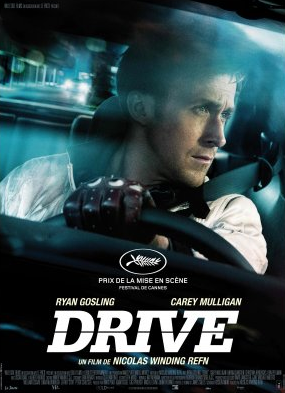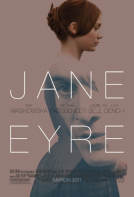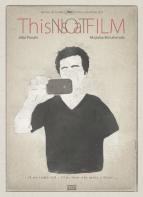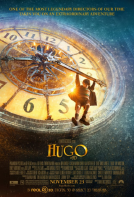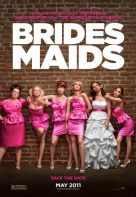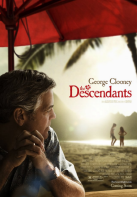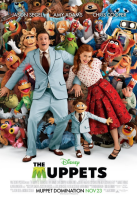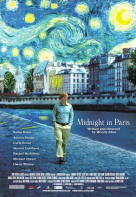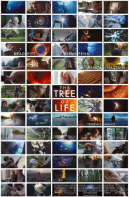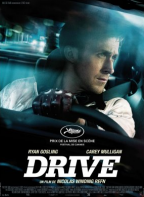Contributors: Jeremy Hannaford, Michael Scoular, Nick Ubels, Tim Ubels, Amy Van Veen – Email
Print Edition: January 25, 2012
Jane Eyre, the brilliant work of gothic fiction from Charlotte Brontë, has been susceptible to the fate of many a classic English novel: the adaptation. There are countless different versions, each trying their best to tell the whole story of the life of the determined Jane Eyre. In Cary Fukunaga’s version, though, Jane’s story is not told from beginning to end; it’s told through a series of flashbacks, leaving out some moments in exchange for others. It may not be exactly how Brontë wrote it, but the landscapes, the cinematography and the subtle portrayals of her main characters all hint towards her gothic core. – A.V.
Viewing Jafar Panahi’s latest, and hopefully not last, film is a painful, awe-inspiring, humbling, and even humourous mixture of thoughts and emotions. What courage was involved with making this film and bypassing censorship is something I don’t think we can truly appreciate, but the film works whether you know the story behind it or not. It’s unlikely This Is Not a Film will ever make it out of NY/LA theatrically, but whatever screen it’s viewed on, Panahi’s film bears both the mark of self-reflexive Iranian cinema and the unclassifiable expression of an incredibly talented, and now sadly jailed, human being. – M.S.
While Martin Scorsese’s latest could be seen as a self-indulgent lecture on how important film preservation is, the truth of the story is that this is a completely selfless gesture. It’s a filmmaker stepping aside and pointing to the original, acknowledging the debt all movie-lovers have to the ones that came before. Hugo, whose first half works far better than most have given it credit for, is a kids’ adventure of discovery that far exceeds any other young adventure this year. It’s an act of pure cinephilia. – M.S.
As funny as penile jokes may be, their relevance to women is somewhat limited. Women need more than a crude joke: they need heart and sincerity to believe why that crude joke was both necessary and funny. Maya Rudolph and Kristen Wiig come together to show the all-too-common problems that occur when one girlfriend gets married. Throw in some puppy stealing and street pooping, and it’s suddenly a classic. – A.V.
Alexander Payne’s film is deceptively simple, showing a father attempting to get to know his family, both in the case of his daughters and the more distant relations looking to cash in on an inheritance. But the depth of character and the journeys through grief they take resist summation. This is by the guy who did Sideways? Who knew his return to filmmaking would have more in common with Kore-eda than whatever Paul Giamatti has been in lately. – M.S.
Kermit, Piggy, Gonzo and the whole gang are on deck as director James Bobin (Flight of the Conchords, Da Ali G Show) helms this heartfelt and unabashedly nostalgic re-launch of the Muppet franchise penned by Forgetting Sarah Marshall scribes Jason Segel and Nick Stoller. Featuring outstanding musical numbers by Bret McKenzie, The Muppets hearkens back to the self-referential humour and warmth of Jim Henson’s original trilogy of Muppet films, while injecting the campy, screwball spirit of the classic ‘70s television show. – N.U
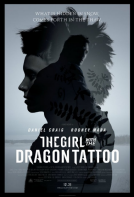 4. The Girl with the Dragon Tattoo
4. The Girl with the Dragon Tattoo
David Fincher’s dark, visually-arresting American adaption of the first instalment in the popular Millennium trilogy features one of the best performances of the year in Rooney Mara’s intensely quiet take on Swedish hacker/investigator Lisbeth Salander. More than a standard procedural, the movie’s uncompromising look at violence against women, Nazism, and the politics of journalism is compelling and provocative. – N.U.
Woody Allen’s latest film is a love letter to the city of Paris, both celebrating its great influence on Allen’s own work while also addressing the pitfalls of nostalgia and golden-age thinking. Owen Wilson is perhaps the most interesting Allen surrogate to date, bringing a certain warmth to a neurotic would-be novel writer with his Texas drawl. – N.U.
Whether you view Terrence Malick’s expansive work as definite (one man’s search for God, Sean Penn having a boring day at work and recalling happier times, a pretentious slog) or indefinite (the ending is anything but, the whole movie is based around the idea of searching for the unfindable, attempting to know the unknowable), The Tree of Life is a movie of lifetimes that, though there have been countless well-written unentanglements and explanations of some of its facets, is perhaps the movie most dependent on its viewer for interpretation of any work this year. “There are two ways through life,” says Jessica Chastain’s character as picture-perfect daylight first streams into the The Tree of Life, but as the film shows, and reaction proved, there are infinite. – M.S.
A standout performance from Ryan Gosling as the nameless “Driver” and a propulsive soundtrack anchor Nicholas Winding Refn’s tense, terse, and luridly vivid picture about crime and violence, both physical and psychological. – N.U.

